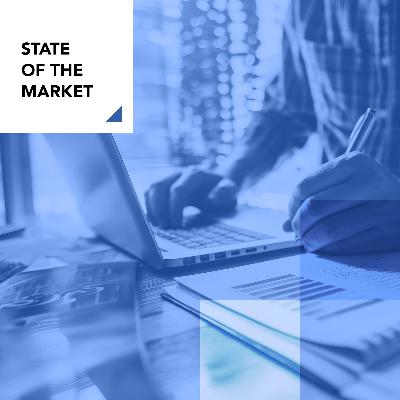Episode 56: Money on Your Mind: Boost Your Financial Confidence – Melissa Leong
Description
When was the last time you talked in depth about your money? Research shows talking about finances can build financial confidence, and lead to better financial outcomes. But you need to know where to start.
On this episode of the REAL TIME podcast we’re joined by Melissa Leong, best-selling author and resident money expert on the daytime talk show, The Social, to dive deeper into the connection between money and happiness, how we use emotion over logic when it comes to financial decision making, some of the most common mistakes made by self-employed individuals, and how being more financially aware can help REALTORS® in their businesses.
Transcript
Erin Davis: What if I told you money can buy happiness, but maybe not in the way you expect? Hi, I'm Erin Davis, and welcome to REAL TIME, the podcast for REALTORS® brought to you by the Canadian Real Estate Association.
Erin: Today we're joined by Melissa Leong, bestselling author and resident money expert on the daytime talk show, The Social, to talk about how financial awareness can be the key to a happy life. Melissa, welcome. It's so good to have you here today. Thank you for joining us.
Melissa Leong: Thank you so much for having me.
Erin: I think it's probably safe to say that money is a taboo topic to a lot of people, and we don't talk about it enough. There is a financial awareness that seems somehow to be missing. Can you walk us through financial awareness and how that relates to financial literacy?
Melissa: Most people focus on financial literacy as this, "Oh, we need to have our children learn more about it in school, and we need to make sure that more people are empowered with the knowledge of how to manage their money and make better decisions because they'll have the facts." I think that's important. I am a financial literacy champion, so absolutely I think that's important. I love that you talked about financial awareness because just because you know something, it doesn't mean you always do what you know.
Why I love to also talk about financial awareness as a sister to financial literacy is yes, we can know everything there is to know about personal finance. That doesn't mean we're going to always make the right decisions when it comes to, financial empowerment and structuring our money in a way that best gives us the opportunities and the life that we want to live. It's two things to keep in your back pocket.
Erin: Okay, so let's dig into that a little bit. Why don't we do things like save, for example, even when we know that it's right? We have so much cognitive dissonance in our lives and so many other places that could be 17 podcasts. Let's talk about this in this episode and why don't we do what's right, like save?
Melissa: This topic could fill volumes. There are many incredible, incredibly smart individuals who are devoting their lives to neuroeconomics or behavioral economics, which is just the study of why we do what we do when it comes to money. I would love just to highlight maybe quickly three of them. One of the three things, some things that what causes us to behave strangely when it comes to money because we're not always rational. We're human beings and there are wonderful quirks to us.
One of the things is that we do not operate well under stress. There's a part of our brain that regulates the long-term repercussions of our actions, which you need when figuring out money decisions. That goes offline when you are stressed, which is fascinating because as you know, money is a stressful topic for many, many people. It's the top thing that we stress about. It's what causes people to lose sleep at night, according to many surveys year after year. It's the top predictor of strife and conflict and separation in relationships.
You add a stressful topic, you have a situation where your brain is focusing on the present versus the future, which is called present bias. You are having your willpower affected and your impulse control affected. Then you're making some interesting money decisions that may be out of character for you when it comes to your wallet, your portfolio, your investment choices, your real estate choices, whatever it is, which just leads to more stress.
You can see, Erin, how you're in this vortex. You're trapped in this cycle. We use money to alleviate pain because it's just a tool. Many people use money to alleviate stress and boredom and anxiety and insecurity and inadequacy. You get this dopamine release when you use money, when you spend money, and that temporarily does improve your mood, but it is temporary. You have this chasing of this feeling with money, which can lead to a lot of stress. That's one thing.
We often say, "Okay, well, you need more knowledge there. You need a budget." You need all these things. Actually, sometimes what you need is a stress reliever. You need a moment or an outlet. If you know that on the way home, you're going to be making some big decisions when it comes to some sort of financial deal, you go for a walk first so that you are dealing with the cortisol component, the regulation component, as well as the money component. That's just one. Very quickly, another one is we're very optimistic. We're very optimistic. People think, no, I know Debbie Downers.
Human beings, the majority of, us think that we're above average drivers. My mother-in-law thinks she's the best driver in the world. She thinks that everyone's waving at her with just one finger. We have a hard time imagining scenarios where things are not going to work out for us. That can make it really hard to plan for the future or have plan Bs or choose the right investment or home or something because you are disconnected from your future self because you're thinking positively. That's the third.
We have a disconnect when it comes to our future selves. There's this fabulous, I say fabulous. It's actually gross, this fabulous experiment that involves people drinking a cup of soy sauce and ketchup. People think, "Ew, right? I'm not drinking that. That's so gross."
Erin: No.
Melissa: My future self will drink it. A stranger and my future self will drink it because you are disconnected from that future self. Imagine that you're making some long-term plans. Studies show that you can actually get people to save more money if they see an age rendering of themselves.
Erin: Okay. Yes. I need to delve into that. Let's say there's an app and we know there are probably a hundred of them out there that will show you what you're going to look like in 20 years, although why anybody would-- Anyway.
Melissa: To save more money, according to research.
Erin: Okay. Explain that to me. Explain that to us all.
Melissa: According to neuroscience, your prefrontal cortex has less activity when you think of your future self versus your present self, which makes it very difficult to make long-term plans and to project out into 10, 20 years from now what your life is going to be like, what you want your goals to be even five years from now. It doesn't have to be looking at a photo of yourself through some sort of app, Erin, if you prefer not to, but it can also just be, say you're working with a client, and you want them to think about the future or make an investment for the future. You might talk to them about, okay, well, what do you envision your day-to-day or your life or what do you envision for yourself say five years from now and really spend time, just connecting with that part of yourself, that helps you make decisions in service of future you as well as balancing the needs of the immediate.
Erin: Okay. Going back to the point about optimism, which I find fascinating, if the current situation is unstable, whether in your life or your country or the world or whatever, whether it's small picture, big picture, how does that affect our decision-making and that optimism? Are you able to delve into that just a bit? I'm really curious about that, Melissa.
Melissa: I think sometimes when hard things befall us, we do get stuck in this, "Okay, well, it's always going to be like this," because right now is what you can imagine. It's a leap to try to imagine an alternate reality for yourself. Yes, absolutely. If you are in a difficult financial situation, the longer you stay in that situation, studies have shown that it is harder to get back onto stable ground. That being said, the research supports that as a whole, human beings tend to be more optimistic.
They'll find a way to justify something. They will find a way to tell themselves a good story. For example, you use the example of something difficult has happened or something tough has happened in the world. Your brain will reach for the good. For example, say you make a purchase and you regret it, your brain will actually--
Erin: We've all been there.
Melissa: Your brain will start to tell yourself things like, "Oh, well, I really needed it." Or, "That thing, it wasn't so bad." There are lots of great studies like this. This is a really fascinating report talking about, say, the Beetle who didn't make it into the band and how he says that was the best thing that ever happened to him. Someone dealt with something difficult, and we do, we
























